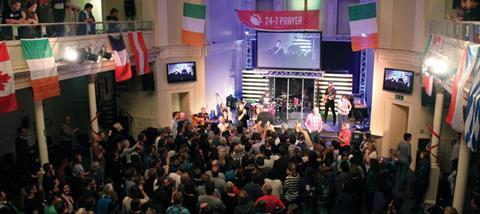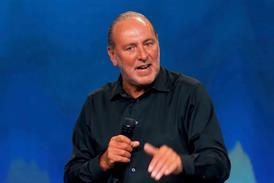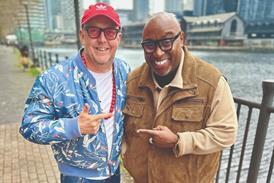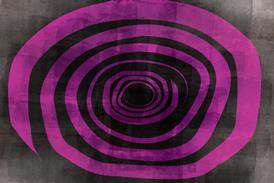
Speakers included Benedictine monk Brother Luigi Gioia, semi-professional footballer Alain Emerson, who runs 24-7 Ireland, and the movement’s founder, Pete Greig, as well as numerous testimonies from delegates from around the world.
Many stories were shared where prayers had been answered in remarkable ways. In South Africa, non-Christians, including atheists, Muslims and addicts, have come to faith through encounters with God in 24-7 prayer rooms.
We need to encounter God in order to encounter culture
A team in Lebanon described setting up a prayer tent alongside a medical clinic to Syrian refugees ? and none of the refugees who were offered prayer declined. One Indian Christian began praying for university students with five friends. This group grew to 200 believers, and now numbers around 20,000.
Dublin marked a time of change for the organisation, now in its 14th year. What started as a youth movement has become an international, multigenerational group, numbering many thousands committed to prayer, mission and justice.
‘We work in a whole multiplicity of different cultures, both internationally and nationally, and even with different people groups,’UK director Brian Heasley told Christianity magazine. ‘We need to create marker points in our life as a movement, whereby we can encounter God in order that we can encounter culture.’
One new development mentioned at the event was the Vision Course, running in both the UK and the US, which aims to train future leaders in prayer. Additionally, new teams starting prayer rooms in Hong Kong, Turkey and Ibiza were commissioned at the event.
Adam Cox, who leads the Kansas City Boiler Room, characterised the event and the movement, saying: ‘It’s relational; it’s radical ? by radical I mean it’s rooted in Jesus. Jesus is the only one who can hold together 30 nations in a room ? some of which have fought with each other. Jesus is the only one who can hold Protestants and Catholics together. It’s so relational because God by nature is a trinity…If we don’t operate like a family, we don’t operate like God.’




























